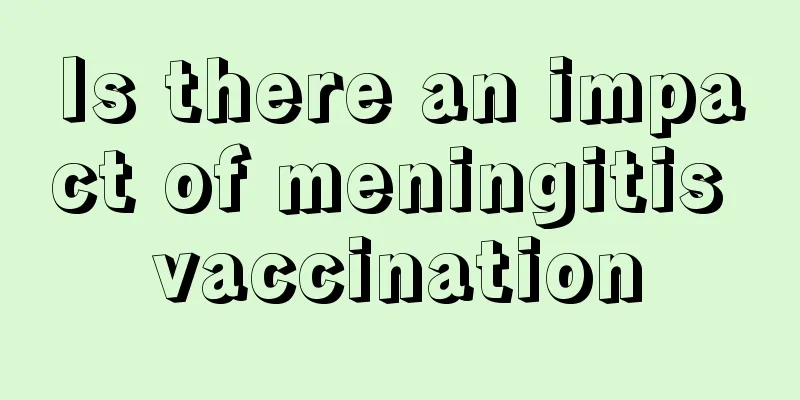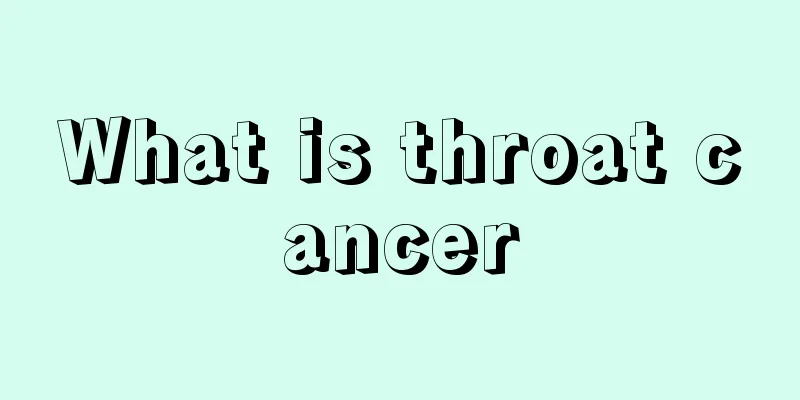Is there an impact of meningitis vaccination

|
As the name suggests, meningitis is a disease caused by inflammation of a certain tissue part of the brain. Symptoms usually include fever, headache, nausea and vomiting, accompanied by drowsiness and convulsions. It mainly involves the human brain nerves. In severe cases, it can directly lead to paralysis, brain shock and death. Therefore, the meningitis vaccine is used to prevent the occurrence of meningitis. It is mainly suitable for people over 2 years old, or children under 2 years old in areas where acute meningitis occurs. When dealing with meningitis, meningitis vaccine is the most effective way of prevention. When should the meningitis vaccine be given, what effect does it play, what side effects does it have, and some precautions when getting the vaccine are all some issues that we must understand when giving our baby the meningitis vaccine. What is the meningitis vaccine? The meningitis vaccine is actually what we call BCG in daily life. The routine meningitis vaccine is targeted at group A and has no resistance to other groups. There are 13 groups of meningococci, including A, B, C, D, X, Y, Z, E, H, I, K, L, and W, with groups A, B, and C being the most common. Therefore, if you travel abroad or where other bacterial meningitis is prevalent, you should get vaccinated in time. Since the popularization of BCG vaccination and the use of effective anti-tuberculosis drugs, the incidence of this disease has been significantly reduced compared with the past, and the prognosis has been greatly improved. However, if the diagnosis is not timely and the treatment is inappropriate, the mortality rate and the incidence of sequelae will remain high. Therefore, early diagnosis and reasonable treatment are the key to improving the prognosis of this disease. The vaccines for preventing encephalitis under my country's immunization program include meningococcal vaccine and Japanese encephalitis vaccine. Children over six months old need two injections of group A meningococcal vaccine, three months apart. The Japanese encephalitis vaccine should be given to children when they are 8 months old. A+C meningococcal vaccine should be given once at the age of three and six. When can babies get the meningitis vaccine? Meningitis vaccine is not given casually. Knowing when is the right time for your baby to get vaccinated will help ensure your baby's safety and health. Meningococcal vaccine is included in the immunization program and must be vaccinated for children of appropriate age if there are no contraindications. The immunization schedule for meningococcal vaccine is one dose each at 7 and 10 months (group A is usually used), and one booster dose each at 3 and 6 years old (groups A+C are usually used). It can be seen from this that the vaccination times for meningococcal vaccine are: 6 months of age, 9 months of age, 3 years of age, and 6 years of age. The vaccination dates for Japanese encephalitis vaccine are: 8 months, 2 years, and 6 years. Both vaccines protect against meningitis. Although Japanese encephalitis (Japanese encephalitis) and meningitis (epidemic encephalomyelitis) are both infectious diseases of the central nervous system and have some similarities in their clinical manifestations, they are two different diseases. First of all, meningococcal disease is caused by meningococci and is transmitted by carriers or patients through respiratory droplets. Japanese encephalitis is caused by the Japanese encephalitis virus, which is transmitted by mosquitoes first among livestock (such as piglets, horses, cattle, etc.) and then to humans. Epidemics of meningococcal disease begin in late winter, are prevalent during the Spring Festival, and decline significantly in early summer. Their seasonality is not as strict as that of Japanese encephalitis. The epidemic of Japanese encephalitis has strict seasonality, mostly occurring in summer and early autumn. Both diseases begin with fever, headache, nausea and vomiting, and typical patients may experience drowsiness, convulsions, coma, etc. However, patients with Japanese encephalitis do not have a bacteremia period, do not develop skin petechiae, and rarely go into shock quickly. Although severe patients of both diseases will experience various dangerous symptoms of increased intracranial pressure, the course of Japanese encephalitis does not progress as rapidly as that of meningococcal meningitis. The general course of meningococcal disease is about 7 to 10 days, and blisters often appear around the mouth and nose during the recovery period. The course of Japanese encephalitis enters the recovery period after about 2 weeks, and neurological and psychiatric symptoms may still remain even 6 months after the onset of the disease. |
<<: Treatment of suppuration caused by BCG vaccine
>>: What vaccines are likely to cause fever?
Recommend
What are the treatments for mental illness?
Mental illness is a very unstable factor for pati...
Is it OK to drink wine after eating crabs? Is it OK to eat grapes after eating crabs?
Summer and autumn are the seasons when grapes rip...
Causes of pancreatic cancer
The cause of pancreatic cancer is unknown, but it...
Differential diagnosis of renal adenoma and renal cancer
Since there are many imaging methods for renal ca...
The body reflected by sweating
We all know that the temperature in a steam room ...
How to avoid aging?
Everyone goes through a long process from birth t...
How to choose a pillow core
Most people don’t know how to choose a pillow cor...
What should you pay attention to when exercising after brain cancer surgery
For those who undergo surgery to treat brain tumo...
How to use antiseptic and antipruritic lotion
Bactericidal and antipruritic agents are commonly...
Can bone cancer be transmitted through the blood?
Bone cancer refers to the skeletal system, which,...
What are the ways for women to prevent ovarian tumors?
What are the prevention methods for ovarian tumor...
Does apples have a ripening effect?
Apple is a commonly eaten fruit. It is rich in an...
What harm will ovarian tumors bring to patients
What are the hazards of ovarian tumors to women? ...
Why do we need MRI
Magnetic resonance imaging, also known as nuclear...
What's wrong with lupus erythematosus having proteinuria
Systemic lupus erythematosus is a relatively comm...









